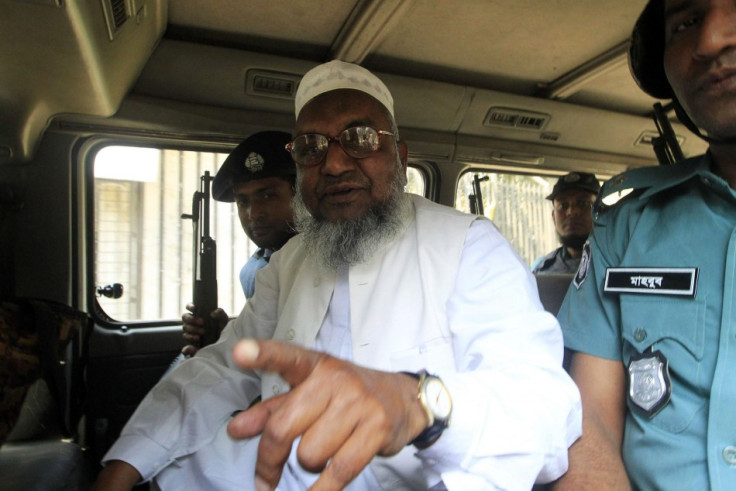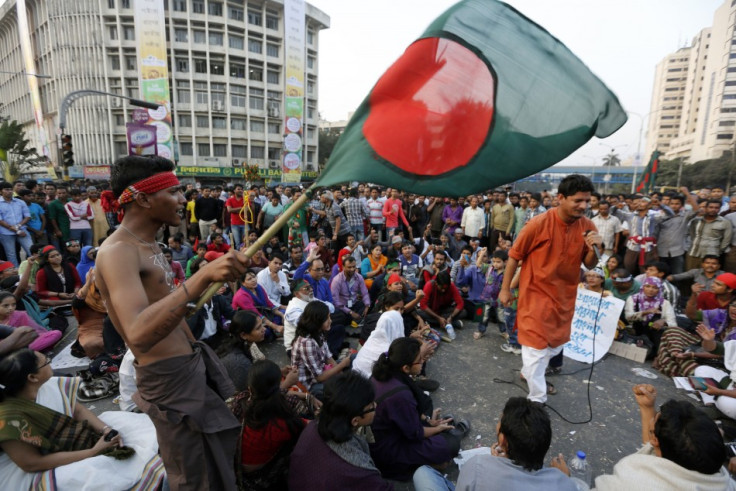Abdul Kader Mullah: 'Execution After Sunset' as Bangladeshi Islamist Leader Loses Final Appeal

The butcher of Mirpur's last mile to the gallows has begun.
Abdul Kader Mullah, the Bangladeshi Islamist convicted of crimes against humanity during the country's 1971 war of independence, has lost his final appeal against death penalty and local reports have said he could be executed after sunset.
The Bangladesh Supreme Court threw out a last-minute petition asking for a review of the death penalty on the Jamaat-e-Islami party leader and said the ruling will pave the way for his hanging.
Mullah, whose conviction and initial sentence of life imprisonment in February had triggered violent street protests in Bangladesh that killed about 100 people, could die at the gallows any time now, probably after sunset, The Daily Star newspaper said.
"Though authorities of the Dhaka Central Jail, where the death row convict has been kept, can now execute Mollah, known as 'Koshai Quader' for his brutal style of torture during the 1971 Liberation War, anytime, they might wait till sunset, according to sources," the newspaper said.
It cited a prison official as saying that executions are usually carried out after zero hours when the prisoners are kept inside their cells and that "anytime after sunset is suitable for the execution".
The Islamist leader was scheduled to be executed on Tuesday night, but was given a last-minute reprieve on a petition asking for a review of the capital punishment.
But the five-member bench of the Appellate Division headed by Chief Justice Md Muzammel Hossain, dismissed his petition eventually, removing the final barrier to his execution.
Bangladeshis had clamoured in the streets for months and forced the government to make amendments to a law and thereby facilitate the award of death penalty to Mullah.
In February, a Bangladeshi war crimes court found Mullah guilty of crimes against humanity during the country's war of independence from Pakistan. He had been accused of orchestrating the abduction and killing of more than 200 Bengali intellectuals in the fading days of the war. Large-scale massacres of pro-independence activists in the Mirpur area of Dhaka had given Mullah the moniker of "koshai" or butcher of Mirpur.

The Bangladesh government set up a special court in 2010 to try Mullah and others accused of collaborating with Pakistan in suppressing the independence movement of 1971. In February, the court awarded him life imprisonment, but the verdict triggered violent protests calling for death penalty for him.
Change in Sentence
The government of Sheikh Hasina, whose father Sheikh Mujibur Rahman was assassinated shortly after he led the country to independence 41 years ago, succumbed to popular pressure and amended the law, clearing the way for the state to appeal against the war crimes tribunal's verdict.
Following this, Mullah's sentence was changed to death penalty from life imprisonment.
After the dismissal of the 65-year-old's petition, Bangladesh is bracing for a violent showdown between the activists of the "Shahbagh" movement and the Jamaat party workers.
"It's another victory for the nation in this month of victory," Imran H Sarker, the convenor of the youth platform that mobilised protests calling for Mullah's execution, said even as hundreds of people came out on the streets in celebration.
However, Mullah had denied the charges against him during the trial and his lawyers have maintained that the judicial process was tainted with political motives.
There was international focus on the case because of the rare instance of the government amending a law to enable the judicial process to go forward towards raising the penalty awarded by the trial court.
© Copyright IBTimes 2025. All rights reserved.






















